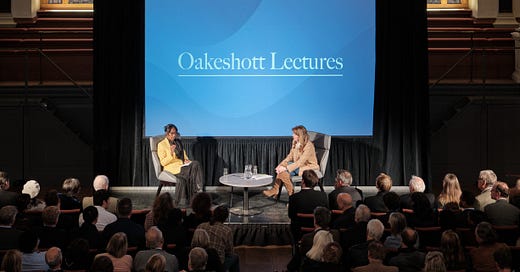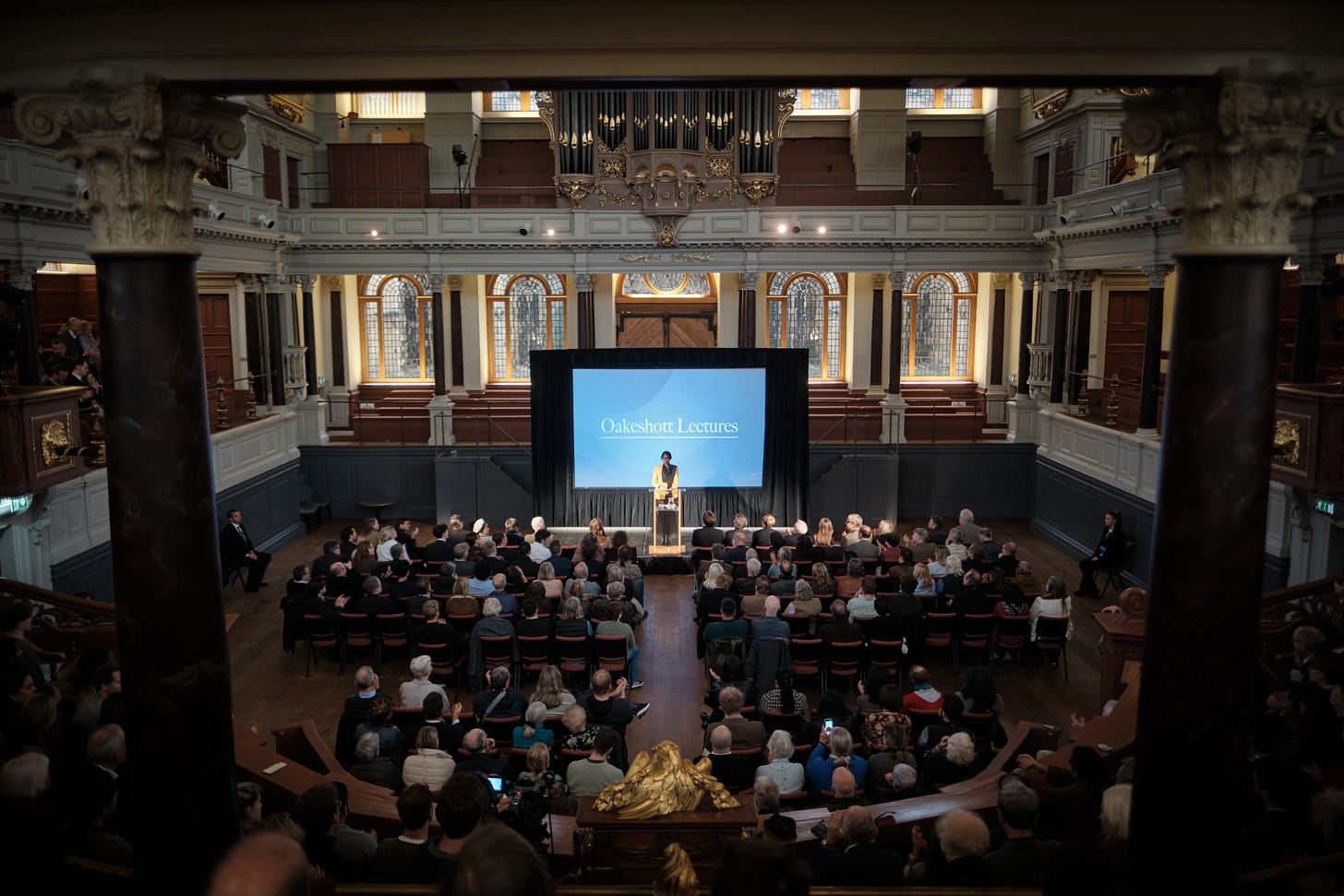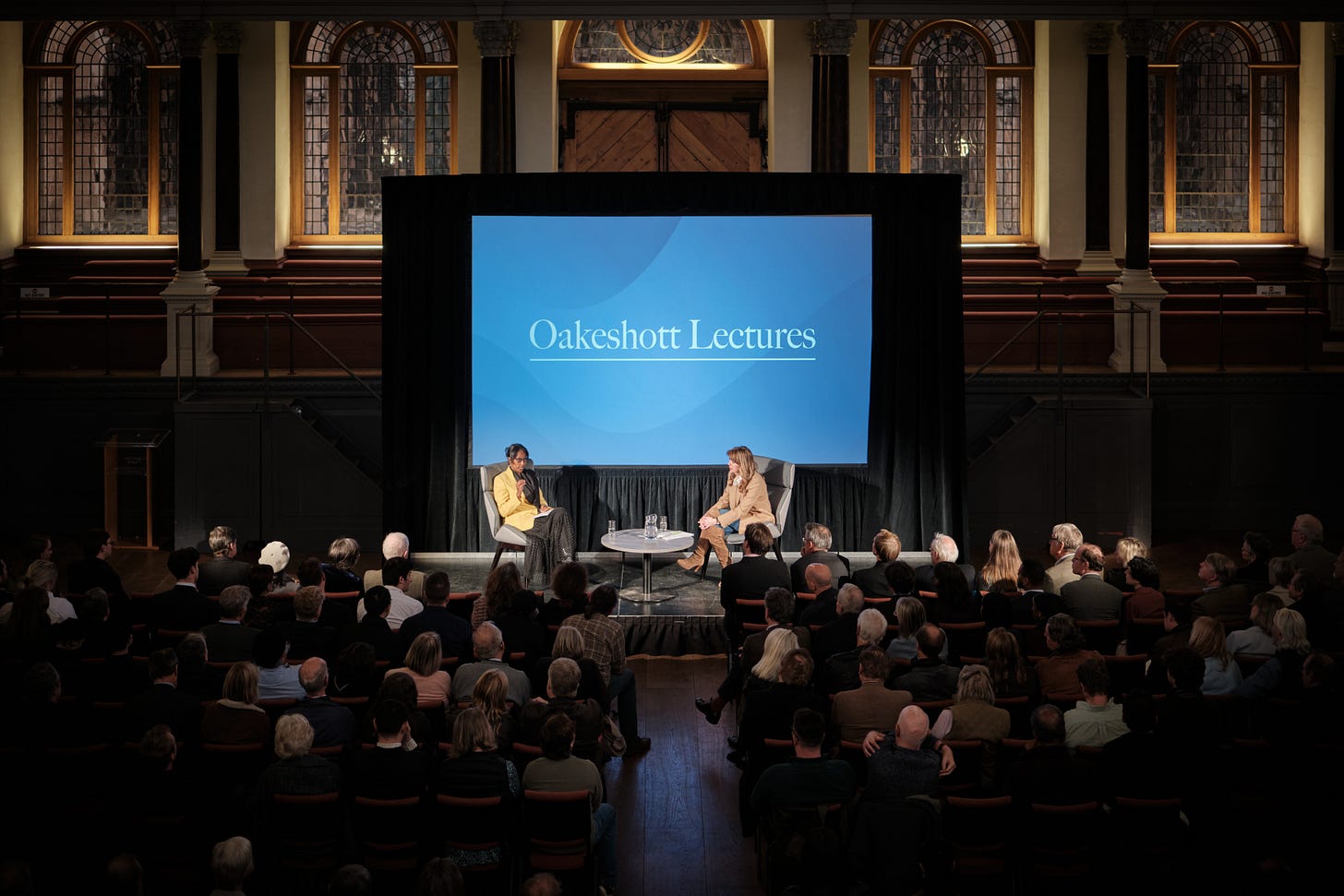It’s time to give this Substack some life again, so let’s do it. There are so many ideas to talk about so let’s start somewhere interesting. Yesterday, I attended the talk at Oxford’s Sheldonian Theatre by Ayaan Hirsi Ali on ‘Irreconcilable Values: Islamism & the West’, organized as part of the Oakeshott (formerly Scruton) Lectures.
(Image: Myself)
You might know Ayaan as one of the most outspoken intellectuals criticizing radical Islam as well as religion in general. In fact, she was a part of the (now defunct) New Atheism movement, although she was not a part of the so-called Four Horsemen (Dawkins, Hitchens, Harris, Dennett). Wikipedia’s entry on ‘New Atheism’ reflects this by saying:
Key figures associated with New Atheism include Richard Dawkins, Sam Harris, Christopher Hitchens, Daniel Dennett, and Ayaan Hirsi Ali.
Significantly, however, in 2023 Ali converted to Christianity and wrote about this in her ‘Why I am now a Christian.’ This is not the place now to recount the story and I will have to look at her thinking in a future post. Luckily, she confirmed that she is still working on her book where she is reflecting on the story of her conversion. While she had announced such a book shortly after her conversion, it was good to hear that it is indeed in the making. Its title, which she mentioned yesterday during her Q&A conversation, should be called Why I am a Christian Now. You might have noticed that the title of her article as well as her book plays on the title of Bertrand Russell’s 1927 essay ‘Why I am Not a Christian.’
In her initial account of her conversion, Ayaan mentioned two reasons which could be dubbed cultural and personal. Yesterday, as could be expected, her entire talk focused on the first part. She mentioned that she had begun to speak out publicly about the dangers of Islamism after 9/11 and she could not imagine back then that more than 20 years later, we still need to be repeating some of the same points. The massacre of 7 October 2023 woke us up to this fact. A massacre that was proportionally 12 times as massive as the 2001 attack on the Twin Towers. Yet the uneducated West has not learned and it has especially not learned its history, evident in its many Western university campuses. We either do not know or pretend that we do not know how Christianity gave its values to the West and, despite all the bad things, did much good. In her 2023 “converstion article”, she admitted being deeply influenced by Tom Holland, and this could be sensed throughout her talk, along with echoes of other authors on these topics, such as Douglas Murray or Nigel Biggar.
(Image: Myself)
There was not much talk of science as far as I can remember, but there was surely plenty of talk about religion and values. One of the main problems she sees today is the disconnect of the (especially) young generation from its Christian roots. In my paraphrase, the deep concern here is that by being disconnected from them leaves us without a firm soil from which to take nutrition. Of course, there are many Christian-nutrition substitutes on offer but their success in giving people meaning is highly questionable, to say the least. She called these uprooted people ‘idiots’ and explained such use of the term etymologically – from the Greek idios, meaning ‘private’ or ‘one's own’, a person not participating in the life of the Greek poleis (for its etymology, see more ‘The Bizarre Origins of the Word Idiot’). The talk ended with the plea that we must not let the Islamists or the idiots win. Of course, there is much that I am leaving out and I am writing this only as a recollection based on a few quick bullet points. From all Ayaan’s videos I have watched, the content that resembles what she was talking about in Oxford is found in the 2024 conversation with her on Triggernometry:
Those with more analytical minds, who are interested in the reasons (evidence) for Christianity, might find her talk wanting. Ayaan has not and will never act as Alvin Plantinga or William Lane Craig, and use philosophy of religion as her main weapon of choice. Those like Richard Dawkins (also in the audience) will still push for scientific or philosophical proofs for the truth of Christianity, not just its metaphorical usefulness. But I think Ayaan is still participating in doing something like philosophy of religion in that she’s pointing out the inadequacy of what we can call narrative scientism. In other words, not only science cannot give us all the answers, but it specifically cannot give us the best stories to guide and shape our lives, communities, and civilizations. All this, of course, raises so many questions, and so the conversation will continue. And that’s great. As Ayaan mentioned twice during her talk, what we need is many “frank, eye-level” conversations.





